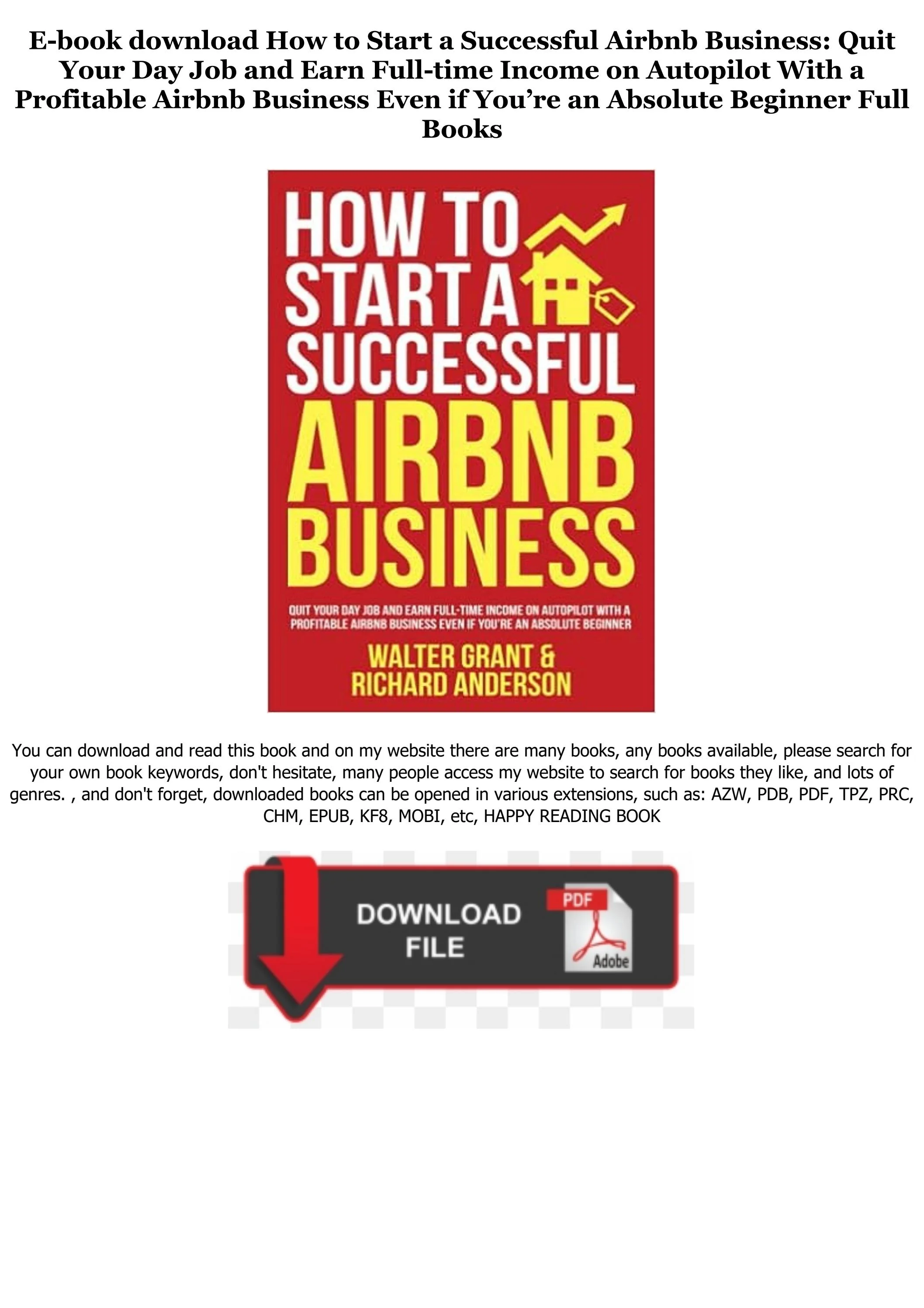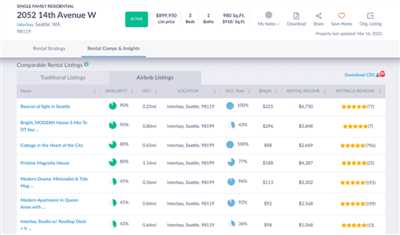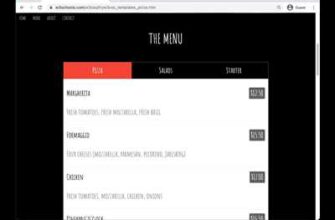
Are you thinking about becoming an Airbnb host? Renting out your property on Airbnb can be a lucrative and exciting business opportunity. However, it’s important to be aware of the general steps involved in starting your own Airbnb and managing it effectively. In this article, we will guide you through the process, from naming your business to obtaining the necessary licenses and insurance.
1. Start with a Plan: Before you dive into opening your own Airbnb, it’s crucial to have a clear plan in place. Define your target audience, pricing strategy, and the goals you want to achieve. This will help you stay focused and make informed decisions along the way.
2. Consider the Costs: While owning an Airbnb can be profitable, it’s essential to consider the expenses involved. This includes not only the initial setup costs but also ongoing expenses such as maintenance, insurance, and marketing. Be sure to carefully calculate your costs to ensure you have a realistic understanding of your potential earnings.
3. Follow Local Laws and Regulations: Operating a short-term rental business like Airbnb often requires following specific rules and regulations set by local authorities. Make sure to familiarize yourself with the laws in your area to avoid any legal issues down the line. This may include obtaining licenses or permits and adhering to safety and zoning requirements.
4. Create Compelling Listing Content: Your Airbnb listing is the first impression potential guests will have of your property. Make sure to create a detailed and attractive listing that highlights the unique features and amenities of your space. Professional photos, a well-written description, and accurate information are crucial in attracting guests and maximizing bookings.
5. Consider Insurance and Protection: As an Airbnb host, it’s important to protect yourself and your property. Airbnb offers host protection insurance, but it’s always a good idea to have your own insurance coverage as well. This can provide additional protection in case of damages or accidents that may occur during a guest’s stay.
6. Manage Your Guests: Communication and guest management are key to running a successful Airbnb. Respond promptly to inquiries and provide clear instructions and guidelines to your guests. Maintain records of all interactions and keep track of any issues or special requests to ensure a positive guest experience.
7. Increase Your Bookings: To increase your chances of bookings and maximize your earnings, consider implementing strategies to attract more guests. This may include offering discounts for longer stays, adjusting your pricing based on demand, or using advanced booking platforms to reach a wider audience.
8. Save for Taxes: As an Airbnb host, you’ll need to save a percentage of your earnings for taxes. It’s important to understand the tax laws in your country and set aside the appropriate amount each month to avoid any surprises when tax season comes around. Keeping accurate records of your income and expenses will also make the process easier.
Starting your own Airbnb can be a challenging but rewarding venture. By following these steps and staying informed about local laws and regulations, you can create a profitable and successful Airbnb business. So, why wait? Start planning and take the first step towards becoming a successful Airbnb host!
- How To Start An Airbnb Business
- Start an Airbnb business by following these 10 steps
- Step 1: Research local laws and regulations
- Step 2: Create a business plan
- Step 3: Determine the costs
- Step 4: Protect yourself with insurance
- Step 5: Set up a bank account
- Step 6: Follow general host guidelines
- Step 7: Prepare your property
- Step 8: Implement a pricing structure
- Step 9: Develop your hosting skills
- Step 10: Promote your listing and welcome guests
- STEP 1 Plan your business
- Want some help naming your Airbnb business
- How to Start an Airbnb Business Checklist
- Additional Questions to Consider Before Opening an Airbnb
- The benefits of starting an Airbnb business
- FAQ for starting an Airbnb Business
- Is Airbnb profitable for hosts
- How to start an Airbnb business as a property owner
- 1. Research and assess your property
- 2. Obtain necessary licenses and permits
- 3. Evaluate costs and expenses
- 4. Set up your Airbnb listing
- 5. Manage your guests and bookings
- 6. Follow legal and safety regulations
- 7. Increase your earning potential
- 8. Save for taxes and account for expenses
- 9. Consider professional help
- 10. Stay informed and adapt
- FAQ
- How much does it cost to start an Airbnb Business
- What percentage does Airbnb take
- How do I make money with Airbnb
- How do I start an Airbnb business with no money
- How to start an Airbnb Business without owning property
- Videos:
- How to Start an Airbnb Business from SCRATCH! (Step-by-Step Guide)
How To Start An Airbnb Business
Starting your own Airbnb business can be an exciting and profitable venture. As a host, you have the opportunity to earn money by renting out your spare room, apartment, or even an entire house to travelers from around the world. But before you jump in, there are a few important steps you need to follow to ensure that you start your Airbnb business off on the right foot.
1. Research local laws and regulations: Before you start hosting on Airbnb, it’s important to check the laws and regulations in your area regarding short-term rentals. Some cities have specific regulations or licensing requirements that hosts must follow. Make sure you are aware of any legal obligations you may have as an Airbnb host.
2. Obtain any necessary licenses or permits: Depending on where you live, you may need to obtain certain licenses or permits to legally operate an Airbnb business. Check with your local government to see if there are any specific requirements for short-term rentals in your area.
3. Consider insurance: While Airbnb does provide host protection insurance, it’s always a good idea to have additional insurance coverage to protect yourself and your property. Depending on your needs, you may want to look into liability insurance, property insurance, or even business insurance to ensure that you are fully covered.
4. Manage your expenses: As a host, there will be expenses involved in running your Airbnb business. These can include cleaning fees, maintenance costs, utilities, and more. Make sure you take these expenses into account when setting your prices and managing your finances.
5. Make it a business: Treat your Airbnb venture as a business. Keep track of your income and expenses, and make sure to follow any tax regulations in your area. It’s also a good idea to open a separate bank account for your Airbnb business to keep your personal and business finances separate.
6. Target the right guests: Know who your target audience is and tailor your listing and amenities to attract them. Do some research to find out what guests are looking for in your area and try to cater to their needs. This will increase your chances of getting bookings and positive reviews.
7. Always follow the Airbnb guidelines: Airbnb has specific guidelines and rules that hosts must follow. These cover topics such as safety, cleanliness, communication with guests, and more. Familiarize yourself with these guidelines and make sure you always adhere to them.
8. Check the competition: Research other Airbnb listings in your area to see what they offer and how much they charge. This will help you determine your pricing strategy and ensure that you stay competitive in the market.
9. Have a checklist for guests: Create a welcome guide or checklist for your guests, outlining important information such as check-in procedures, house rules, and local recommendations. This will help ensure that your guests have a great experience and know what to expect during their stay.
10. Name your listing: Choose a catchy and descriptive name for your listing that will attract potential guests. Think about the unique features or benefits of your property and incorporate them into the name. A creative and memorable name can help your listing stand out from the competition.
Starting an Airbnb business can be challenging, but with the right planning and preparation, it can also be a rewarding venture. Follow these steps, do your research, and with a bit of luck, you’ll be on your way to becoming a successful Airbnb host.
Start an Airbnb business by following these 10 steps
Starting your own Airbnb business can be a profitable venture, but it depends on how well you plan and manage the various aspects of the business. Luckily, Airbnb provides a platform that makes it easy for homeowners to earn extra money by renting out their properties to guests.
Before you start your Airbnb business, there are some important steps you should follow to ensure success:
Step 1: Research local laws and regulations
It’s important to know the laws and regulations that govern short-term rentals in your area. Some cities have specific rules and licenses that hosts must obtain before renting their properties. Make sure you understand the legal requirements and costs associated with hosting.
Step 2: Create a business plan
Like any business, it’s wise to have a business plan in place. Identify your target audience, set goals, and establish a marketing strategy. This will help you stay organized and focused on your objectives.
Step 3: Determine the costs
Before opening your doors to guests, make sure you understand the financial implications. Calculate the costs of property maintenance, insurance, fees to Airbnb, and other expenses. You need to have a clear understanding of the potential risks and benefits.
Step 4: Protect yourself with insurance
As an Airbnb host, it’s essential to have the right insurance coverage. Regular homeowner’s insurance may not provide adequate protection for short-term rentals. Discuss your situation with an insurance professional to ensure you have the necessary coverage.
Step 5: Set up a bank account
Opening a separate bank account for your Airbnb business is a smart move. This will make it easier to manage your finances and keep your personal and business expenses separate.
Step 6: Follow general host guidelines
Airbnb provides general guidelines for hosts to follow. Make sure you familiarize yourself with these rules and regulations to create a positive and memorable experience for your guests.
Step 7: Prepare your property
Before your first guests arrive, make sure your property is clean, safe, and well-equipped with essential amenities. Pay attention to the details and create a welcoming environment for your guests.
Step 8: Implement a pricing structure
Determining the right price for your Airbnb listing is crucial. Consider factors such as location, property size, amenities, and competition. You want to set a price that is attractive to guests while still allowing you to make a reasonable profit.
Step 9: Develop your hosting skills
To be a successful Airbnb host, you need to develop certain skills. Communication, hospitality, and problem-solving are all important skills that will help you create a positive guest experience.
Step 10: Promote your listing and welcome guests
Once your Airbnb listing is ready, it’s time to promote it and start welcoming guests. Utilize Airbnb’s built-in promotional tools, engage with potential guests, and provide excellent customer service to ensure repeat bookings and positive reviews.
Starting your own Airbnb business can be challenging, but with the right strategy and determination, it can also be very rewarding. Follow these 10 steps to increase your chances of success and create a profitable venture.
sources: airbnb.com, entrepreneur.com, blog.airbnb.com
STEP 1 Plan your business
Before you start your own Airbnb, you’ll need to plan your business carefully. There are several key steps you need to follow in order to ensure your success.
The first step is to do some research. You’ll need to research the local laws and regulations regarding short-term rentals in your area. You’ll also want to research the average costs and expenses associated with owning and operating an Airbnb property. This includes things like property taxes, insurance fees, and maintenance costs. Researching these topics will give you a better understanding of the potential risks and benefits of starting your own Airbnb business.
The next step is to determine your target market. Who do you want to attract as guests? Is your property intended for vacationers, business travelers, or others? Knowing your target market will help you create a listing that will appeal to them and increase your chances of earning a profit.
Once you’ve done your research and identified your target market, the next step is to create a business plan. Your business plan should include the following:
- A clearly defined business name and structure.
- A guide to the rules and regulations you’ll need to follow.
- A breakdown of the costs and expenses associated with your business.
- A plan for how you’ll obtain and manage your property.
- A plan for how you’ll market your listing and attract guests.
- A strategy for how you’ll handle guest communications, check-ins, and maintenance.
It’s important to note that starting your own Airbnb business does come with some risks. Luckily, there are some steps you can take to minimize these risks. One step is to obtain insurance coverage that specifically covers short-term rentals. This will help protect you financially in case of any accidents or damages that occur during a guest’s stay.
In conclusion, planning your own Airbnb business takes some time and effort, but the potential benefits can be worth it. With the right research, skills, and preparation, you can create a profitable business that provides a comfortable stay for guests and helps you earn some extra money.
Want some help naming your Airbnb business
When you decide to start your own Airbnb, one of the important steps you will need to take is to come up with a catchy and memorable name for your business. The name you choose will not only be the first impression for potential guests, but it will also help you differentiate yourself from other hosts in your area.
Here are some steps to consider when naming your Airbnb business:
1. Research and brainstorm: Start by researching other Airbnb listings in your area and see what names are already taken. This will help you avoid any potential conflicts or confusion with other hosts. Create a list of potential names that reflect the unique features or theme of your property.
2. Consider your target audience: Think about the type of guests you want to attract and what kind of experience you want to provide. Your name should be appealing and memorable to your target audience.
3. Be specific and descriptive: Your name should give potential guests an idea of what to expect when they stay at your property. Use words that describe the location, amenities, or unique features of your space.
4. Stay away from generic names: Avoid using generic names that don’t stand out or differentiate your business from others. Be creative and think outside the box to come up with something unique.
5. Keep it simple and easy to remember: A simple and easy-to-remember name is more likely to stick in people’s minds. Avoid lengthy or complicated names that are hard to spell or remember.
6. Check for domain name availability: If you plan to create a website for your Airbnb business, make sure the domain name is available before finalizing your business name. Having a website can add a professional touch to your listing and make it easier for potential guests to find you.
7. Follow the laws and regulations: Before naming your Airbnb business, research any local laws or regulations that may apply to short-term rentals in your area. Make sure your business name complies with these laws and accurately represents your offerings.
8. Consider the future potential: Think about the long-term goals for your Airbnb business. Will you expand to other properties in the future? If so, choose a name that can encompass a broader range of offerings.
9. Use keywords: Including relevant keywords in your business name can help improve your Airbnb’s search visibility and attract more potential guests. Think about what keywords guests might search for when looking for accommodations in your area.
10. Get feedback: Once you have a list of potential names, ask friends, family, or other trusted individuals for feedback. They can provide valuable insights and help you choose the best name for your Airbnb business.
Remember, the name you choose for your Airbnb business will become an integral part of your brand. It should accurately represent your offerings, be catchy, and resonate with your target audience. Good luck with your naming process!
How to Start an Airbnb Business Checklist
If you want to start your own Airbnb business, there are several important steps you must follow. This checklist will guide you through the process of getting started and help ensure that you operate your business legally and with the potential to earn money. Here are some general topics to consider:
| Step 1: | Research local laws and regulations |
| Step 2: | Understand the fees and expenses associated with owning an Airbnb property |
| Step 3: | Decide on the structure of your business and obtain any necessary permits or licenses |
| Step 4: | Consider obtaining insurance to cover potential risks and liabilities |
| Step 5: | Create a target audience and develop a marketing plan to attract guests |
| Step 6: | Ensure your property is ready for guests by conducting a thorough maintenance check |
| Step 7: | Manage and respond to guest inquiries and bookings in a professional and timely manner |
| Step 8: | Consider hiring additional help, such as cleaning or maintenance services, to save time and increase guest satisfaction |
| Step 9: | Protect yourself and your property by taking necessary security measures |
| Step 10: | Follow the Airbnb content policy and guidelines for hosting |
By following this checklist, you can ensure that you start your own Airbnb business on the right foot. Remember to stay informed about local laws and regulations, manage your expenses, and provide a high-quality experience for your guests. Good luck with your new venture!
Additional Questions to Consider Before Opening an Airbnb
Opening an Airbnb can be a rewarding and lucrative venture, but it also requires careful consideration and planning. As a professional host, there are more questions you’ll need to answer before you can start earning income from your property. Here are some additional questions you should consider:
1. What are the potential benefits of opening an Airbnb?
Opening an Airbnb can provide a source of additional income and may be a great way to make use of a property you already own. Depending on your location and the demand for accommodations in your area, you may be able to earn a substantial amount of money on a monthly basis.
2. What are the potential risks and challenges of opening an Airbnb?
Operating an Airbnb can be challenging and comes with risks. You’ll need to consider the costs of maintaining the property, obtaining any necessary licenses or permits, and managing the general upkeep of the space. Additionally, you’ll need to deal with guests on a regular basis, which can sometimes be a difficult or time-consuming task.
3. What legal and insurance considerations do I need to take into account?
Before opening an Airbnb, it’s important to familiarize yourself with the laws and regulations governing short-term rentals in your area. You may need to obtain certain licenses or permits and adhere to specific rules regarding taxes, safety, and noise control. It’s also crucial to have proper insurance coverage to protect yourself and your property in case of any accidents or damages.
4. How do I create a listing and what should I include in the content?
The way you list your property can have a big impact on the number of bookings you receive. Consider hiring a professional photographer to take high-quality pictures of your space and highlight its best features. Write a compelling and detailed description that accurately portrays your property and its amenities. Also, think about what target audience you want to attract and tailor your content accordingly.
5. What are the costs and expenses associated with owning and operating an Airbnb?
In addition to the general costs of owning a property, such as mortgage payments, property taxes, and maintenance, there are also expenses specific to operating an Airbnb. These may include cleaning fees, supplies for guests, advertising costs, and potentially higher utility bills. Make sure to factor in these costs when determining the potential income and profitability of your Airbnb.
6. How can I increase my potential income as an Airbnb host?
To increase your potential income as an Airbnb host, you can consider factors such as location, pricing strategies, and length of stay requirements. For example, if your property is in a desirable area or close to popular attractions, you may be able to charge higher nightly rates. Additionally, offering discounts for longer stays can attract guests who are looking for extended accommodations.
7. Should I consider getting professional help or managing it myself?
Deciding whether to manage your Airbnb yourself or enlist the help of a professional depends on your skills, available time, and comfort level. While managing it yourself may save you money, hiring a property management company can take some of the burdens off your shoulders and ensure a smooth operation.
Opening an Airbnb can be a fulfilling and exciting venture, but it’s important to consider these additional questions and thoroughly evaluate what it entails. By doing your due diligence and understanding the potential risks and benefits, you’ll be better equipped for a successful and enjoyable experience as an Airbnb host.
The benefits of starting an Airbnb business
Starting your own Airbnb business can offer a range of exciting possibilities and benefits. Here are some of the key advantages:
- Potential for high income: By renting out a room or your entire house on Airbnb, you have the opportunity to earn a significant income. Many hosts are able to make more money through short-term rentals compared to traditional long-term leasing arrangements.
- Flexibility and control: As an Airbnb host, you have the freedom to manage your rental property on your own terms. You can set the availability, house rules, and rental rates according to your preferences.
- Low costs and minimal investment: Unlike traditional bed and breakfasts or hotels, starting an Airbnb business requires low initial investment. You can save on costs such as licensing fees, insurance, and additional staff.
- Professional assistance: Airbnb provides hosts with a range of tools and resources to help them succeed. The platform offers support with listing creation, guest management, and marketing.
- Income diversification: Renting out your property on Airbnb can provide an additional source of income. This can be especially beneficial if you already have a full-time job or other income streams.
- Opportunity to meet new people: Hosting guests from different parts of the world can be an enriching experience. You can learn about different cultures, make new connections, and potentially form lasting friendships.
- Flexibility in choosing guests: As an Airbnb host, you have the ability to screen potential guests and choose who stays in your property. This gives you a level of control and ensures that you feel comfortable with the people you host.
Starting your own Airbnb business can be a profitable endeavor without the need for professional skills or experience. However, it is wise to do thorough research and follow the necessary steps to ensure legal compliance and maximize your chances of success. Make sure to familiarize yourself with local laws and regulations, obtain any required licenses, and follow Airbnb’s guidelines.
When starting your Airbnb business, naming your listing is an important step. Choose a name that reflects the unique features and location of your property, while also being catchy and memorable. A well-chosen name can help attract potential guests and make your listing stand out.
Lastly, it’s always wise to have insurance coverage to protect yourself and your property. Airbnb offers a host protection program, but you may also want to consider additional insurance options for added peace of mind.
In summary, starting an Airbnb business offers many benefits, including the potential for high income, flexibility and control, low costs, professional assistance, income diversification, the opportunity to meet new people, and flexibility in choosing guests. By following the necessary steps, doing thorough research, and taking precautions, you can start your own profitable Airbnb business and enjoy the rewards it brings.
FAQ for starting an Airbnb Business
Starting your own Airbnb business can be a profitable venture, but it’s important to understand the necessary steps and considerations before diving in. Here are some frequently asked questions to help guide you:
| Question | Answer |
|---|---|
| What do I need to start my own Airbnb? | Before starting, you’ll need to have a plan in place. This includes understanding local laws and regulations, obtaining any necessary licenses, setting up a bank account for your business, and ensuring you have the necessary skills and resources to maintain your listing. |
| How much money can I make as an Airbnb host? | The amount of money you can earn as an Airbnb host depends on various factors such as your location, the size and condition of your property, and the demand in your area. On average, hosts can earn a profitable income by renting out their space on a short-term basis. |
| What steps should I take to list my property? | When listing your property, you should start by creating a compelling name and writing an informative and enticing description of your space. You should also include high-quality photos and set competitive pricing. Additionally, make sure to follow Airbnb’s guidelines and rules, as well as ensure the safety and comfort of your guests. |
| Should I get insurance coverage for my Airbnb business? | Yes, it is wise to obtain insurance coverage for your Airbnb business. This provides protection against potential risks and ensures that you are financially covered in case of any unexpected incidents or damages. |
| Does Airbnb provide any legal protection for hosts? | Airbnb does offer some legal protection for hosts, but it’s important to understand that they’re not liable for any issues that may arise. It is wise to familiarize yourself with local laws and regulations to ensure that you’re fully compliant. |
| What records should I keep as an Airbnb host? | As an Airbnb host, you should keep records of your income, expenses, and any relevant documentation related to your business. This will help you stay organized, track your profits, and fulfill your tax obligations. |
| Is it possible to earn a profit by hosting on Airbnb? | Yes, it is possible to earn a profit by hosting on Airbnb. However, it depends on various factors such as your location, the demand for rentals in your area, and how well you manage your listing. By following Airbnb’s guidelines and providing a great guest experience, you have the potential to generate a profitable income. |
Starting your own Airbnb business can be a rewarding experience, but it also comes with its challenges. By following the suggested checklist and addressing these frequently asked questions, you will be better prepared to start your own successful Airbnb venture.
Is Airbnb profitable for hosts
When it comes to earning some extra income, Airbnb can be a great option for property owners. However, whether it is profitable or not depends on several factors. In this section, we will cover some important questions and factors to consider before opening your own Airbnb.
Firstly, you should know that being an Airbnb host takes time and effort. It’s not only about listing your property and waiting for guests. You’ll need to manage bookings, communicate with guests, and ensure the property is ready for their stay. Additionally, you should follow all the rules and laws that apply to renting out your property.
Before you start with Airbnb, it’s important to assess the potential income. Research the average rental rates in your area, and estimate how much you can charge per night or per month. Keep in mind that Airbnb takes a percentage of your earnings as their service fee. You should also consider any additional costs such as cleaning fees, maintenance expenses, and possible legal fees.
Another factor to consider is the demand for accommodations in your area. If there is plenty of competition and a low number of guests, it may be more challenging to attract bookings. On the other hand, if your location is popular and there is high demand, you have a higher chance of earning a good income as an Airbnb host.
Airbnb provides some benefits for hosts that can help make it more profitable. They offer a host protection insurance program that covers damages and liabilities caused by guests. This can give you peace of mind knowing that you’re protected in case of any unfortunate events. Additionally, Airbnb provides a platform where guests can leave reviews, which can help attract more bookings and build your reputation as a host.
To be a successful Airbnb host, you’ll need certain skills. These include good communication skills, flexibility, and the ability to deal with different types of guests. You should also have strong organizational skills to manage bookings, keep records, and handle any issues that may arise during a guest’s stay.
Before you start hosting on Airbnb, you should check with your local laws and regulations to ensure that you’re legally allowed to do so. Some cities have specific rules and restrictions for short-term rentals, so it’s important to be aware of these before you start.
In conclusion, being an Airbnb host has the potential to be profitable, but it also comes with risks and expenses. It’s important to carefully consider all the factors mentioned above and do your research before opening your own Airbnb. With the right preparation and management, Airbnb can be a rewarding business opportunity.
| Steps to Start Your Own Airbnb: | Helpful Resources: |
|---|---|
| 1. Create an Airbnb account | – Airbnb website |
| 2. Set up your listing with a detailed description and attractive photos | – Airbnb host resources |
| 3. Determine the price and availability of your property | – Airbnb pricing tools |
| 4. Prepare your property for guests, ensuring it is clean and well-maintained | – Airbnb cleaning guide |
| 5. Respond promptly to guest inquiries and booking requests | – Airbnb messaging system |
| 6. Welcome your guests and provide a positive experience | – Airbnb guest welcome guide |
| 7. Maintain records of income and expenses for tax purposes | – Airbnb financial tools |
| 8. Regularly update and improve your listing to attract more guests | – Airbnb host community |
| 9. Follow the guidelines and rules set by Airbnb | – Airbnb host standards |
| 10. Consider hiring a professional property manager if you have multiple listings | – Airbnb property management services |
How to start an Airbnb business as a property owner
Starting an Airbnb business as a property owner can be a profitable venture, but it requires careful planning and consideration. Here is a step-by-step guide to help you get started:
1. Research and assess your property
Before opening your property to guests, you need to research and assess its potential. Consider the location, amenities, and size of your property. Determine if it is suitable for short-term rentals and if there is a demand in the area.
2. Obtain necessary licenses and permits
Check if your local laws and regulations require any licenses or permits to operate an Airbnb business. It is crucial to comply with all legal requirements to avoid any potential legal issues in the future.
3. Evaluate costs and expenses
Create a checklist of all the expenses you will incur, including property maintenance, cleaning fees, utilities, and taxes. Calculate the costs associated with managing your property, and determine a reasonable price to charge guests.
4. Set up your Airbnb listing
Create a compelling listing that highlights the unique features of your property. Include attractive photos, a detailed description, and accurate pricing information. Make sure to check the Airbnb guidelines on what content is allowed before naming your listing.
5. Manage your guests and bookings
Be prepared to interact with guests and handle their inquiries and requests. Respond to messages promptly and provide clear instructions for check-in and check-out. Invest in good communication skills to ensure a positive guest experience.
6. Follow legal and safety regulations
Make sure to follow all local laws and regulations and provide a safe environment for your guests. Familiarize yourself with the rules and regulations for short-term rentals in your area and ensure compliance with safety measures.
7. Increase your earning potential
If you want to earn more from your Airbnb business, consider offering additional services or experiences to your guests. This could include guided tours, transportation services, or arranging special events.
8. Save for taxes and account for expenses

As an Airbnb host, you are responsible for reporting your income and paying taxes. Set aside a portion of your earnings each month to cover your tax obligations. Additionally, keep track of all your expenses to ensure accurate accounting.
9. Consider professional help
If managing your Airbnb business becomes overwhelming, consider outsourcing some tasks to professionals. This could include hiring a property manager or a cleaning service to help you maintain your property and ensure a high level of guest satisfaction.
10. Stay informed and adapt
Stay updated with the latest Airbnb trends, rules, and regulations. Continuously research and improve your hosting skills to provide an exceptional experience for your guests. Adapt to changes in the market and implement strategies to increase your profitability.
FAQ
Q: How much money can I earn from an Airbnb business?
A: The potential earnings from an Airbnb business depend on various factors such as location, property size, demand, and pricing. It is wise to research the average rates in your area and consider the expenses and taxes involved before setting your prices.
Q: What percentage does Airbnb take from hosts?
A: Airbnb typically charges hosts a percentage of each booking, which can vary depending on the type of reservation. The exact percentage is determined by Airbnb and can be found on their website.
Q: What are the benefits of starting an Airbnb business?
A: Starting an Airbnb business can provide several benefits such as an additional source of income, the flexibility to work from home, meeting new people, and the opportunity to showcase your property.
Q: What are the risks of running an Airbnb business?
A: Running an Airbnb business comes with some risks, including potential damage to your property, legal disputes with guests or neighbors, and fluctuating demand. It is essential to have proper insurance coverage and consider the potential risks before starting.
Remember, starting an Airbnb business as a property owner requires careful research, planning, and execution. Follow the above steps and guidelines to maximize your chances of success and create a profitable Airbnb business.
How much does it cost to start an Airbnb Business
Starting an Airbnb business can be a profitable venture, but it’s important to understand the costs involved before diving in. The fees and expenses associated with operating an Airbnb go beyond just the initial investment, so it’s wise to do your research and consider everything.
The first cost you’ll encounter is the Airbnb service fee. This fee is typically a percentage of the booking cost and helps to cover the costs of the platform. It’s important to check the specific fee structure for your local area, as it can vary.
In addition to the Airbnb service fee, there may be other fees and expenses associated with opening an Airbnb business. These can include obtaining any necessary licenses or permits, professional fees for legal or accounting services, and costs for insurance or other forms of protection.
Before you start an Airbnb, you should also consider any additional costs you may incur. These can include maintenance and cleaning expenses, as well as the cost of furnishing the space to make it attractive to guests. It’s important to have a budget in place and to make sure you have enough money to cover these expenses.
An important aspect of operating an Airbnb is managing your finances. Keeping accurate records of your income and expenses is crucial for tax purposes and for understanding the financial health of your business. You’ll want to keep track of all the money that comes in and goes out, which can help you identify areas where you can save or ways to increase profitability.
In terms of income, it’s worth noting that the amount you can make as an Airbnb host can vary depending on factors such as location, the size and condition of your property, and the demand in your area. Doing research into the local market and understanding what potential guests are looking for can help you set a competitive price and attract bookings.
It’s always a good idea to have some skills or knowledge of the hospitality industry to help you create a positive experience for your guests. Being a professional host can lead to positive reviews and repeat business.
Before opening your Airbnb, it’s important to consider any risks that may be associated with short-term rentals. You should check local laws and regulations to ensure that you’re allowed to operate an Airbnb in your area. It’s also wise to have a plan in place to address any potential issues or complaints that may arise from guests.
One area that you may have overlooked are the general expenses that come with opening an Airbnb business. These can include utilities, such as electricity and water, as well as any marketing or advertising costs you may have.
If you’re not sure where to start, Airbnb has a wealth of resources available to help you. Their FAQ section can be a great starting point where you can find answers to common questions. You can also reach out to other Airbnb hosts in your area to gain insights and advice from those who have already started their own businesses.
To sum it up, the cost of starting an Airbnb business depends on a variety of factors. You should carefully consider all the expenses, fees, and risks involved before taking the plunge. With proper planning and management, Airbnb can be a profitable venture that allows you to generate income and share your space with guests from all over the world.
What percentage does Airbnb take
As a professional Airbnb host, there are expenses you’ll need to take into account when doing your research on how to start your own Airbnb business. One of the key questions you’ll need to answer is: “What percentage does Airbnb take?”
Before we dive into the specific numbers, it’s wise to understand the costs and risks involved in operating a short-term rental business. As an Airbnb host, you’ll need to follow the rules and regulations set by your local government and obtain any necessary licenses or permits. This includes obtaining the proper insurance coverage to protect yourself and your property.
The percentage that Airbnb takes from each booking depends on a few factors. The percentage can vary depending on the specific details of your listing and the fees associated with it. Generally, Airbnb charges hosts a service fee that is a percentage of the total booking amount. The exact percentage can range from around 3% to 5%, but it can vary based on several factors such as the length of the stay and the location of the property.
It’s important to note that the percentage Airbnb takes does not include any additional fees you may have associated with your listing. These additional costs could include cleaning fees, pet fees, or fees for additional services you offer. It’s up to you as the owner to set these fees and manage them as part of your business.
In order to save on costs and increase your potential profit, it’s wise to do some research and follow the faq provided by Airbnb. They have guidelines and tips for hosts on how to create a successful and profitable listing. By following their advice, you can cover all the necessary steps and ensure that you’re making the most of your Airbnb business.
It’s always a good idea to research the benefits and risks of renting out your property before you start, as there are both legal and financial implications to consider. Make sure you have a clear understanding of the costs involved, as well as the potential to earn additional income through short-term rentals.
When naming your property and creating content for your listing, it’s important to target your ideal guests and use descriptive and enticing language to attract them. Highlight the unique features of your property and make sure to include any amenities or benefits that set it apart from others.
In conclusion, the percentage that Airbnb takes from each booking can vary, but on average it may range from 3% to 5%. However, it’s important to account for additional costs and fees that are not included in this percentage. By following the faq provided by Airbnb and doing your research, you can operate a profitable Airbnb business and make the most of the potential income opportunities it offers.
How do I make money with Airbnb
If you’re considering opening your own Airbnb, it’s important to understand how you can make money from it. Luckily, there are plenty of potential sources of income when it comes to short-term rentals.
One of the main ways to earn money with Airbnb is by renting out your own space. Depending on the location and size of your property, you can charge a competitive rate that is comparable to the average cost of a hotel stay. However, before you start listing your space, make sure you understand any local laws and regulations that may apply to short-term rentals.
When you become an Airbnb host, you’ll need to consider the costs and fees associated with owning and maintaining the property. These can include the cost of obtaining any necessary licenses and permits, as well as insurance for both yourself and your guests. It’s always wise to save some money for unexpected expenses and to have a business plan in place to target potential guests.
To ensure the success of your Airbnb, it’s important to be professional and provide a high-quality experience for your guests. This can include having a well-maintained and clean room, offering additional amenities, and always being available to answer any questions or address any issues that may arise during their stay.
To increase your earnings as an Airbnb host, you can also consider doing some additional research to see what other successful hosts in your area are doing. You may find that they have found ways to optimize their listing and attract more guests. It’s also important to keep records of your income and expenses, as you may need this information for tax purposes.
It’s important to note that becoming an Airbnb host can also have some challenges. It’s your responsibility to ensure that your listing is legal and compliant with local regulations. You may also need to deal with difficult guests or unexpected maintenance issues. However, with proper planning and attention to detail, owning and operating a profitable Airbnb can be a rewarding venture.
So, if you’re wondering how much money you can make with Airbnb, it depends on a variety of factors. Make sure to follow the checklist of tasks before opening your listing, and always check with your local laws and regulations to make sure you’re operating within the limits of the law. With some research and planning, you can create a successful and profitable Airbnb business.
If you have any additional questions, check out Airbnb’s FAQ section or reach out to other experienced hosts for guidance. There are plenty of resources available to help you navigate the world of Airbnb hosting and maximize your earning potential.
How do I start an Airbnb business with no money
Starting an Airbnb business without any initial capital may seem challenging, but with careful planning and strategic steps, it is possible to get started. Follow these steps to begin your journey as an Airbnb host:
- Research and save: Before diving into the world of Airbnb hosting, it’s essential to conduct thorough research to understand the platform, target audience, local laws, and regulations. Additionally, save some money to cover initial expenses.
- Create a professional Airbnb profile: Your profile is the first impression potential guests will have of your property. Create a detailed and appealing profile that showcases the unique features of your space.
- Utilize free marketing channels: To attract guests, make use of free marketing channels such as social media, word-of-mouth, and online forums. Engage with potential guests by sharing high-quality photos and compelling content.
- Consider short-term rental laws and regulations: Familiarize yourself with the local laws and regulations regarding short-term rentals. Ensure compliance with any necessary permits, licenses, or taxes.
- Check your property records: Verify whether your property has any restrictions or HOA rules regarding short-term rentals. Ensure that your property is suitable for hosting guests.
- Think about co-hosting: If you can’t afford the initial costs alone, consider partnering with others who already have an established Airbnb business. They can provide guidance and potential financial assistance.
- Luckily, it’s possible to obtain some financial support: Look for grants, loans, or crowdfunding opportunities aimed at supporting those starting a business. Explore government programs or local initiatives that offer financial assistance to entrepreneurs.
- Calculate your fees and expenses: Determine the costs associated with operating an Airbnb business, including cleaning fees, maintenance expenses, and any additional charges. Ensure that you have a proper plan to cover these expenses.
- Target guests who are willing to pay more: Research and find your niche market. Target guests who are looking for more than just a typical hotel experience and are willing to pay a premium for unique accommodations.
- Focus on guest satisfaction: Providing an excellent guest experience will lead to positive reviews and recommendations, which are crucial for attracting future guests and ensuring a steady flow of income.
Remember, starting an Airbnb business with no money requires careful planning, dedication, and a willingness to go above and beyond to create a memorable experience for your guests. While the potential for profit is high, success depends on how well you manage your property, maintain a professional image, and abide by the rules and regulations in your area. Good luck!
How to start an Airbnb Business without owning property
Starting your own Airbnb business can be a profitable venture, even if you don’t own any property. Many people are making money by renting out their homes on Airbnb, but you can also join the platform as a host without owning any property yourself. Here’s how you can do it:
1. Research the Laws and Regulations: Before you start hosting on Airbnb, it’s important to research the laws and regulations in your area. Some cities have strict rules for short-term rentals, and you’ll want to make sure you’re operating within the legal boundaries.
2. Obtain the Necessary Permits and Licenses: Depending on where you live, you may need to obtain certain permits or licenses to legally operate an Airbnb business. Check with your local government to understand the requirements and obtain the necessary paperwork.
3. Name and Structure your Business: Just like any other business, your Airbnb venture will need a name and structure. Consider naming your business something professional and catchy that will attract potential guests.
4. Create a Checklist for Guest Stay: To ensure a smooth and enjoyable experience for your guests, create a checklist of things to provide and things to check before each stay. This can include items like cleanliness, maintenance, and amenities.
5. Follow and Learn from other Successful Hosts: There are plenty of resources available from experienced Airbnb hosts who have already been successful. Follow their content and learn from their experiences to help you navigate the challenges of starting your own Airbnb business.
6. Find someone to help with Maintenance and Housekeeping: If you don’t have the time or skills to handle the maintenance and housekeeping of your Airbnb property, consider hiring someone to help you with these tasks. This will ensure that your property is always in top shape for guests.
7. Keep Records and Stay Organized: As with any business, it’s important to keep records of your earnings, expenses, and bookings. This will help you track your profitability and stay organized when tax season comes around.
8. Make a Wise Pricing Strategy: Determine the average price of similar Airbnb listings in your area and set your prices accordingly. Take into account the quality and amenities you offer, as well as the demand in your area.
9. Maximize your Earnings by Occupancy Rate: To make your Airbnb business more profitable, focus on maximizing your occupancy rate. This means having as many bookings as possible throughout the year. Consider offering discounts for longer stays or during off-peak seasons.
10. Be Prepared for Additional Costs and Questions: Opening an Airbnb business comes with additional costs such as insurance, cleaning fees, and potential repairs. Be prepared for these and have a clear FAQ section on your listing to answer common questions from guests.
Starting an Airbnb business without owning property may seem challenging, but with the right research, planning, and preparation, it is entirely possible. Follow this guide and learn from the experiences of other successful hosts to help you on your journey towards becoming a profitable Airbnb host.









